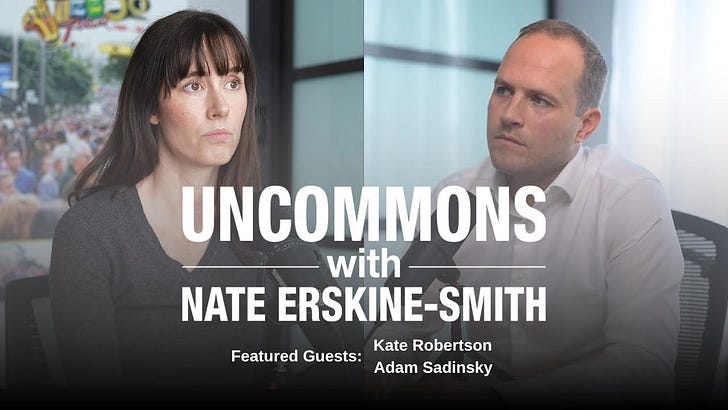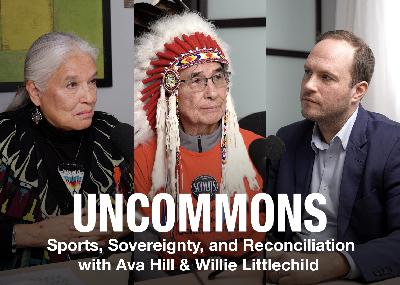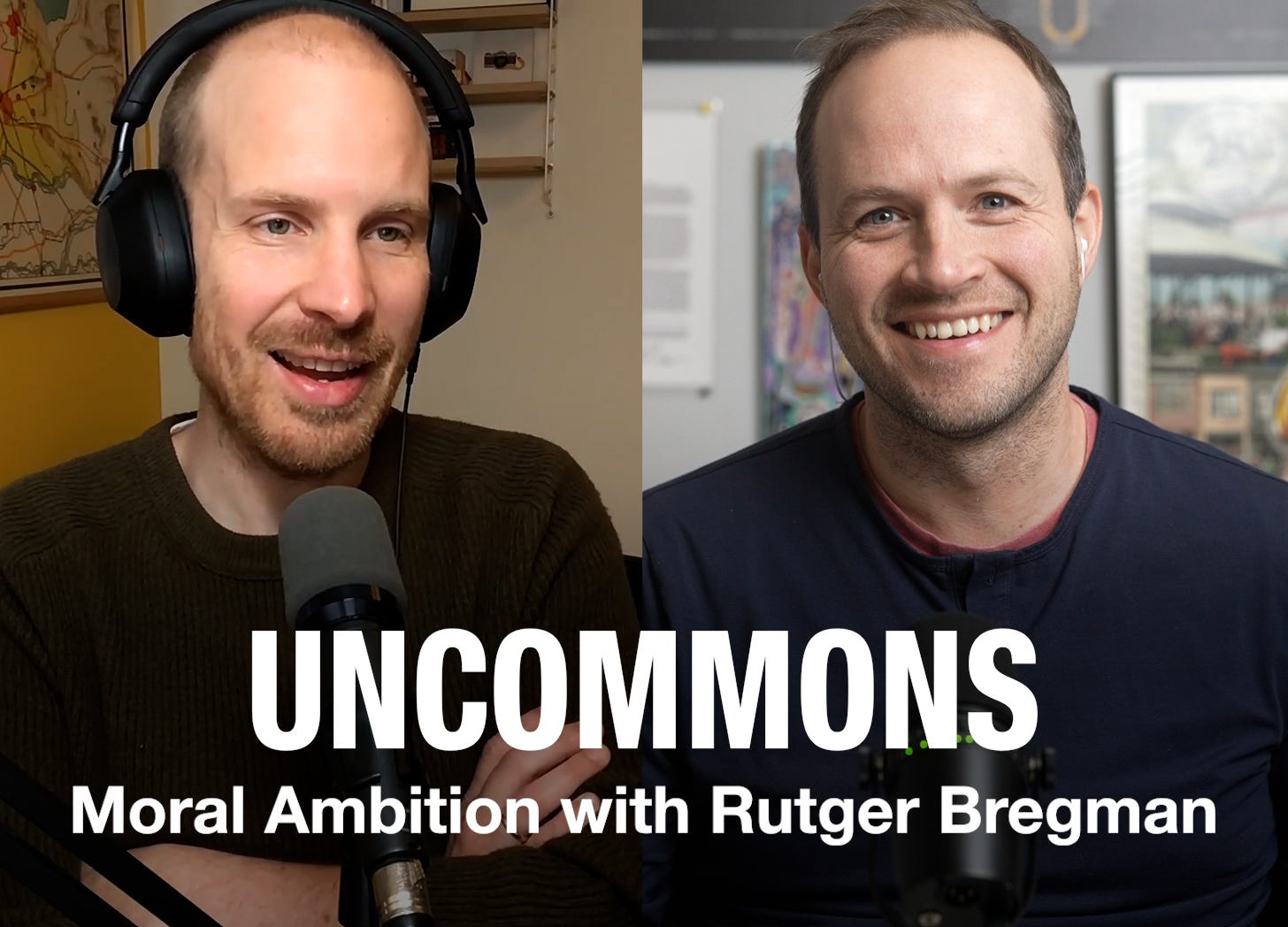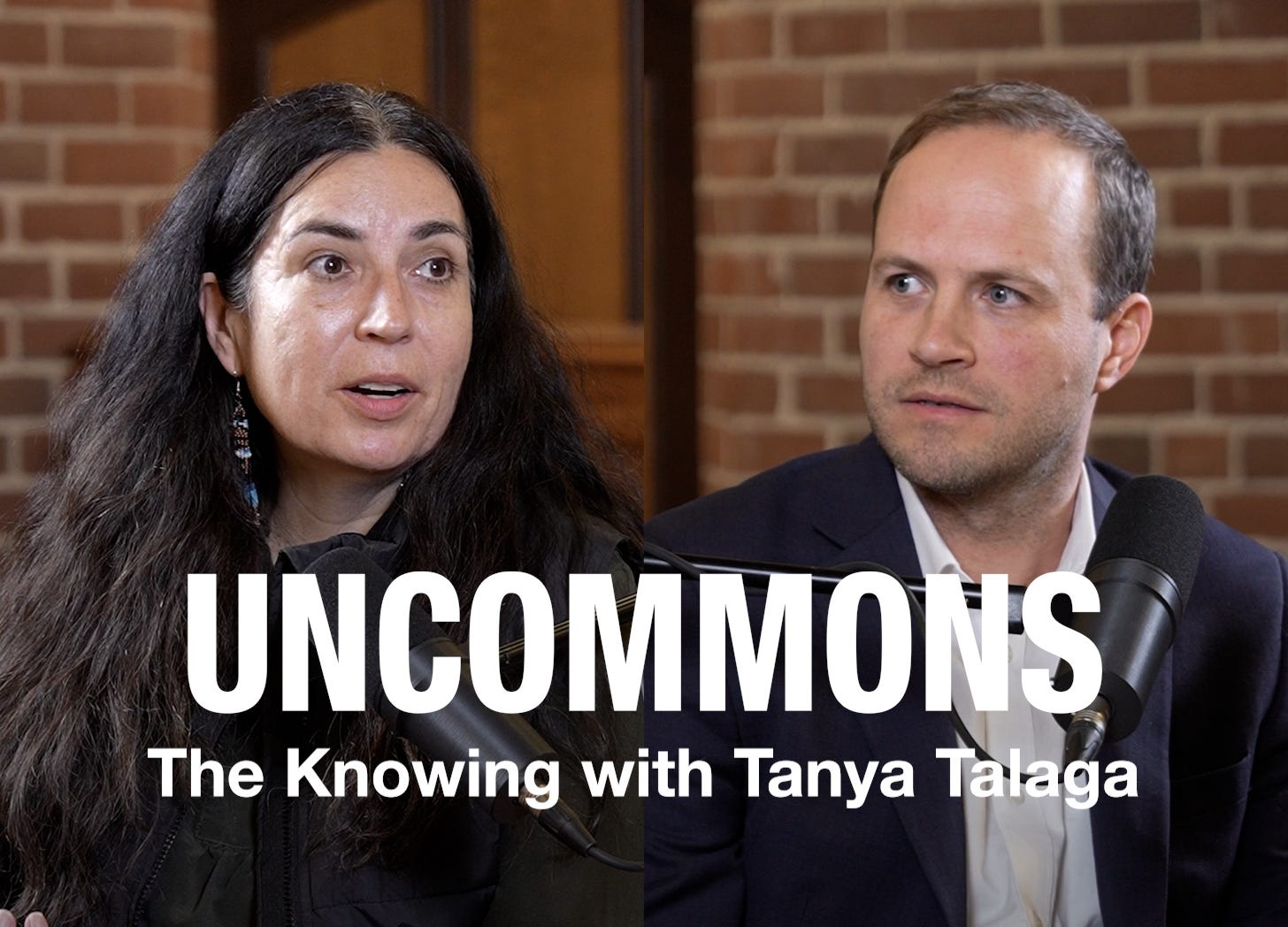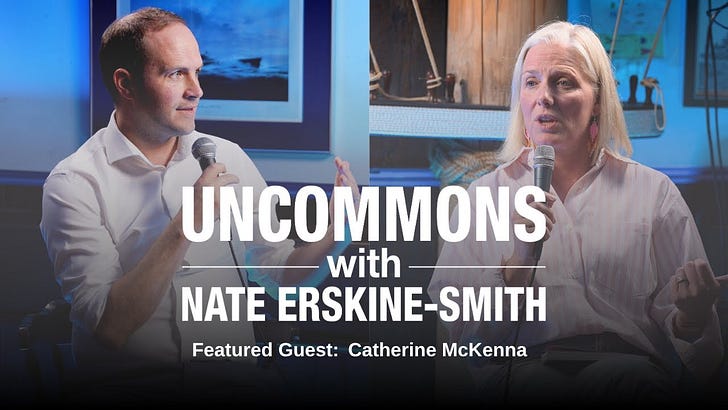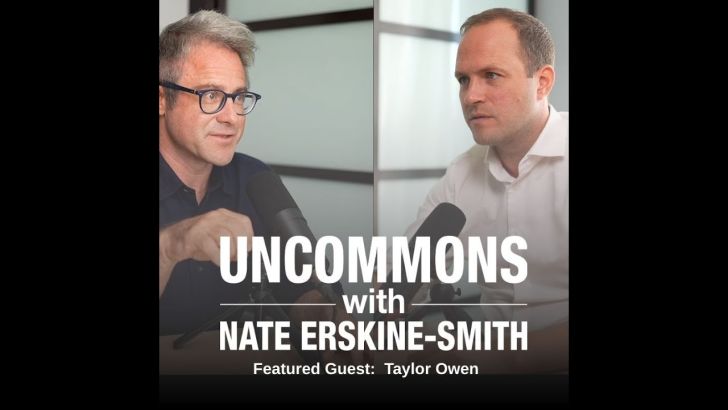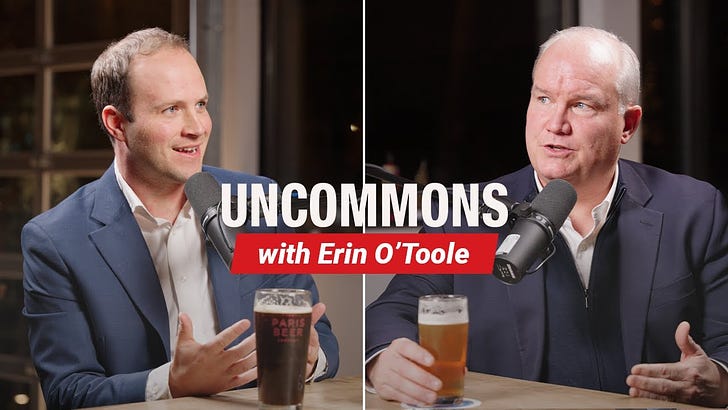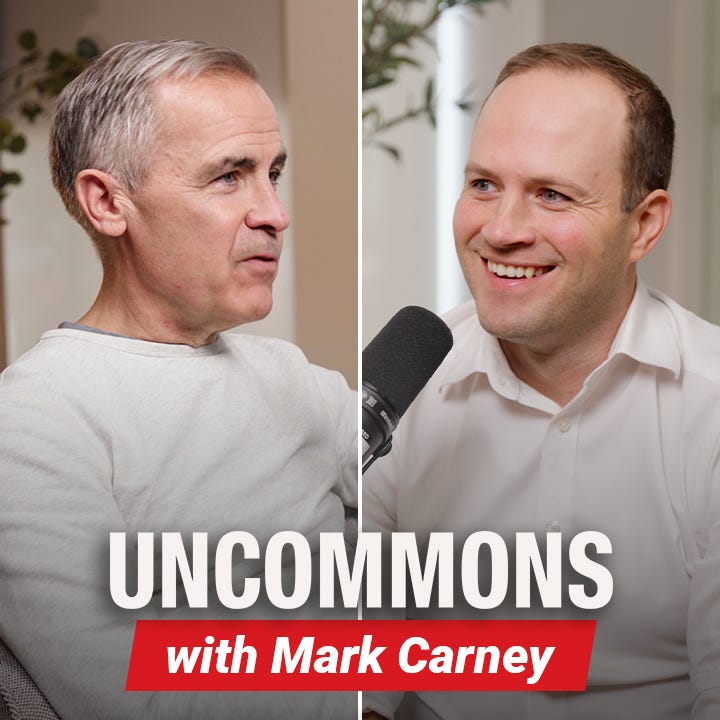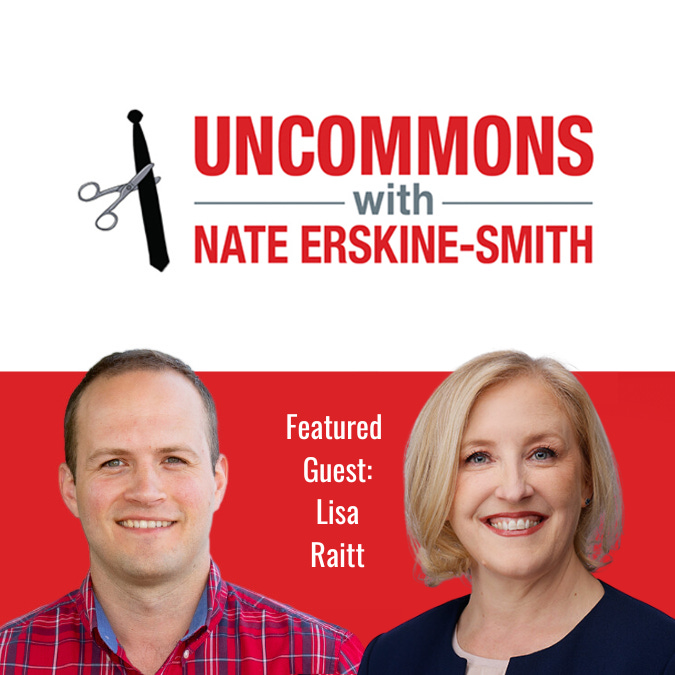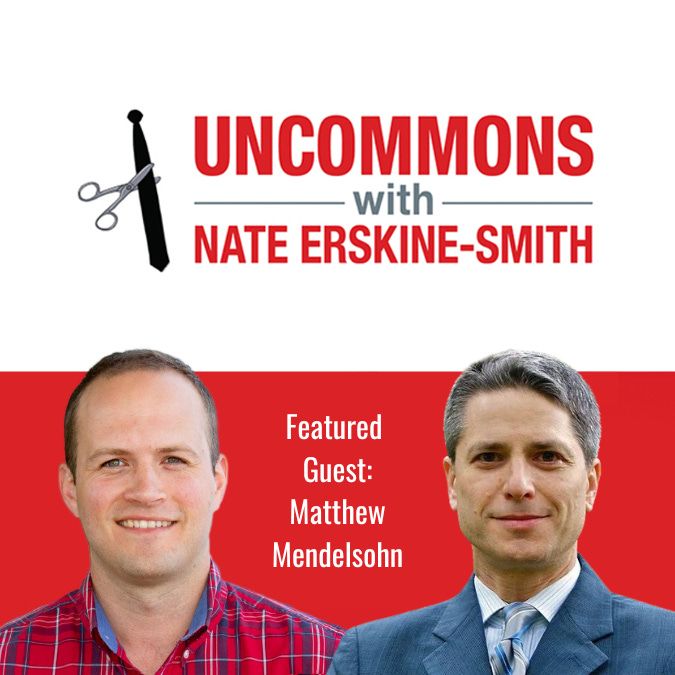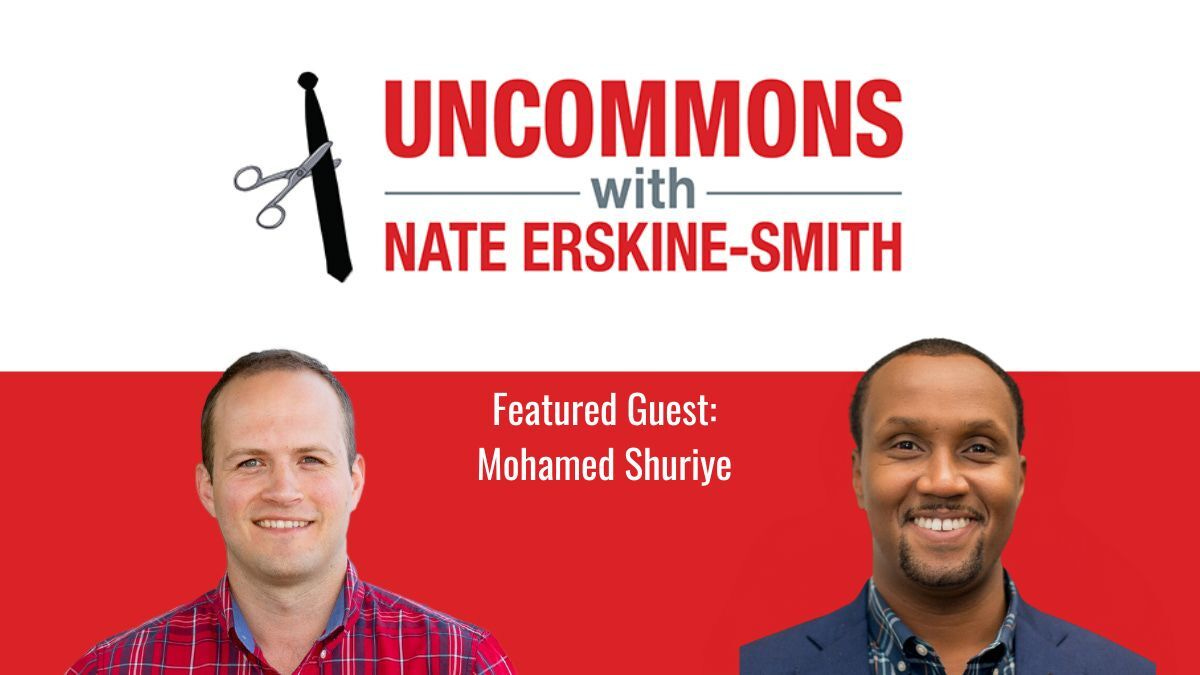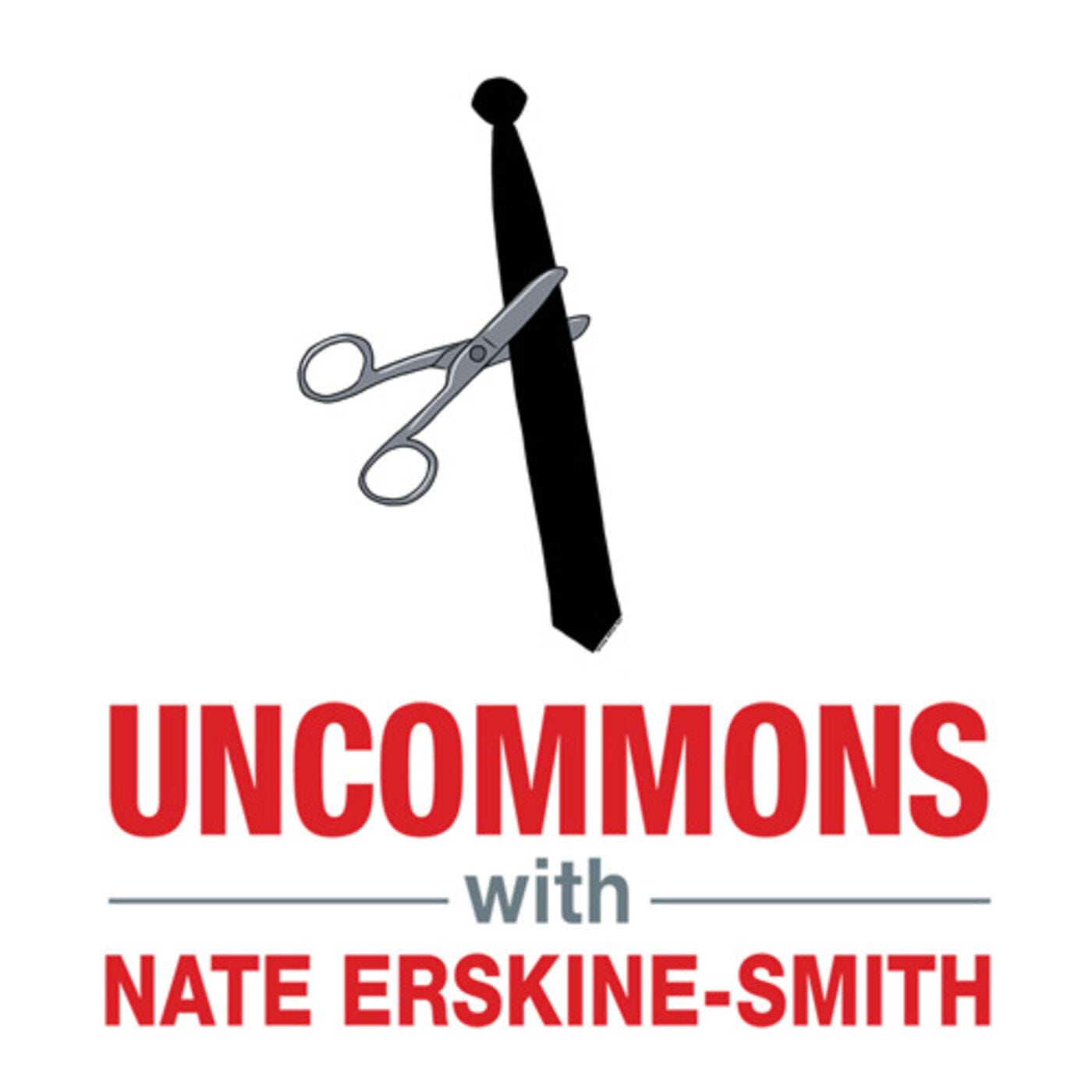The Strong Borders Act? with Kate Robertson and Adam Sadinsky
Description
** There are less than 10 tickets remaining for the live recording of Uncommons with Catherine McKenna on Thursday Oct 2nd. Register for free here. **
On this two-part episode of Uncommons, Nate digs into Bill C-2 and potential impacts on privacy, data surveillance and sharing with US authorities, and asylum claims and refugee protections.
In the first half, Nate is joined by Kate Robertson, senior researcher at the University of Toronto’s Citizen Lab. Kate’s career has spanned criminal prosecutions, regulatory investigations, and international human rights work with the United Nations in Cambodia. She has advocated at every level of court in Canada, clerked at the Supreme Court, and has provided pro bono services through organizations like Human Rights Watch Canada. Her current research at Citizen Lab examines the intersection of technology, privacy, and the law.
In part two, Nate is joined by Adam Sadinsky, a Toronto-based immigration and refugee lawyer and co-chair of the Canadian Association of Refugee Lawyers’ Advocacy Committee. Adam has represented clients at every level of court in Canada, including the Supreme Court, and was co-counsel in M.A.A. v. D.E.M.E. (2020 ONCA 486) and Canadian Council for Refugees v. Canada (2023 SCC 17).
Further Reading:
Unspoken Implications A Preliminary Analysis of Bill C-2 and Canada’s Potential Data-Sharing Obligations Towards the United States and Other Countries - Kate Robertson, Citizen Lab
Kate Robertson Chapters:
00:00 Introduction & Citizen Lab
03:00 Bill C-2 and the Strong Borders Act
08:00 Data Sharing and Human Rights Concerns
15:00 The Cloud Act & International Agreements
22:00 Real-World Examples & Privacy Risks
28:00 Parliamentary Process & Fixing the Bill
Adam Sadinsky Chapters:
33:33 Concerns Over Asylum Eligibility in Canada
36:30 Government Goals and Fairness for Refugee Claimants
39:00 Changing Country Conditions and New Risks
41:30 The Niagara Falls Example & Other Unfair Exclusions
44:00 Frivolous vs. Legitimate Claims in the Refugee System
47:00 Clearing the Backlog with Fair Pathways
50:00 Broad Powers Granted to the Government
52:00 Privacy Concerns and Closing Reflections
Part 1: Kate Robertson
Nate Erskine-Smith
00:00-00:01
Kate, thanks for joining me.
Kate Robertson
00:01-00:01
Thanks for having me.
Nate Erskine-Smith
00:02-00:15
So I have had Ron Debert on the podcast before. So for people who really want to go back into the archive, they can learn a little bit about what the Citizen Lab is. But for those who are not that interested, you’re a senior researcher there. What is the Citizen Lab?
Kate Robertson
00:16-01:00
Well, it’s an interdisciplinary research lab based at University of Toronto. It brings together researchers from a technology standpoint, political science, lawyers like myself and other disciplines to examine the intersection between information and communication technologies, law, human rights, and global security. And over time, it’s published human rights reports about some of the controversial and emerging surveillance technologies of our time, including spyware or AI-driven technologies. And it’s also really attempted to produce a thoughtful research that helps policymakers navigate some of these challenges and threats.
Nate Erskine-Smith
01:01-02:50
That’s a very good lead into this conversation because here we have Bill C-2 coming before Parliament for debate this fall, introduced in June, at the beginning of June. And it’s called the Strong Borders Act in short, but it touches, I started counting, it’s 15 different acts that are touched by this omnibus legislation. The government has laid out a rationale around strengthening our borders, keeping our borders secure, combating transnational organized crime, stopping the flow of illegal fentanyl, cracking down on money laundering, a litany of things that I think most people would look at and say broadly supportive of stopping these things from happening and making sure we’re enhancing our security and the integrity of our immigration system and on. You, though, have provided some pretty thoughtful and detailed rational legal advice around some of the challenges you see in the bill. You’re not the only one. There are other challenges on the asylum changes we’re making. There are other challenges on lawful access and privacy. You’ve, though, highlighted, in keeping with the work of the Citizen Lab, the cross-border data sharing, the challenges with those data sharing provisions in the bill. It is a bit of a deep dive and a little wonky, but you’ve written a preliminary analysis of C2 and Canada’s potential data sharing obligations towards the U.S. and other countries, unspoken implications, and you published it mid-June. It is incredibly relevant given the conversation we’re having this fall. So if you were to at a high level, and we’ll go ahead and some of the weeds, but at a high level articulate the main challenges you see in the legislation from the standpoint that you wrote in unspoken implications. Walk us through them.
Kate Robertson
02:51-06:15
Well, before C2 was tabled for a number of years now, myself and other colleagues at the lab have been studying new and evolving ways that we’re seeing law enforcement data sharing and cross-border cooperation mechanisms being put to use in new ways. We have seen within this realm some controversial data sharing frameworks under treaty protocols or bilateral agreement mechanisms with the United States and others, which reshape how information is shared with law enforcement in foreign jurisdictions and what kinds of safeguards and mechanisms are applied to that framework to protect human rights. And I think as a really broad trend, what is probably most, the simplest way to put it is that what we’re really seeing is a growing number of ways that borders are actually being exploited to the detriment of human rights standards. Rights are essentially falling through the cracks. This can happen either through cross-border joint investigations between agencies in multiple states in ways that essentially go forum shopping for the laws and the most locks, that’s right. You can also see foreign states that seek to leverage cooperation tools in democratic states in order to track, surveil, or potentially even extradite human rights activists and dissidents, journalists that are living in exile outside their borders. And what this has really come out of is a discussion point that has been made really around the world that if crime is going to become more transient across borders, that law enforcement also needs to have a greater freedom to move more seamlessly across borders. But what often is left out of that framing is that human rights standards that are really deeply entrenched in our domestic law systems, they would also need to be concurrently meaningful across borders. And unfortunately, that’s not what we’re seeing. Canada is going to be facing decisions around this, both within the context of C2 and around it in the coming months and beyond, as we know that it has been considering and in negotiation around a couple of very controversial agreements. One of those, the sort of elephant in the room, so to speak, is that the legislation has been tabled at a time where we know that Canada and the United States have been in negotiations for actually a couple of years around a potential agreement called the CLOUD Act, which would quite literally cede Canada’s sovereignty to the United States and law enforcement authorities and give them really a blanket opportunity to directly apply surveillance orders onto entities, both public and private in Canada?
Nate Erskine-Smith
06:16-07:46
Well, so years in the making negotiations, but we are in a very different world with the United States today than we were two years ago. And I was just in, I was in Mexico City for a conference with parliamentarians across the Americas, and there were six Democratic congressmen and women there. One, Chuy Garcia represents Chicago district. He was telling me that he went up to ICE officials and they’re masked and he is saying, identify yourself. And he’s a congressman. He’s saying, identify yourself. What’s your ID? What’s your badge number? They’re hiding their ID and maintaining masks and they’re refusing to identify who they are as law enforcement officials, ostensibly refusing to identify who they are to an American congressman. And if they’re willing to refuse to identify themselves in that manner to a congressman. I can only imagine what is happening to people who don’t have that kind of authority and standing in American life. And that’s the context that I see this in now. I would have probably still been troubled to a degree with open data sharing and laxer standards on the human rights side, but all the more troubling, you talk about less democratic jurisdictions and authoritarian regimes. Well, isn’t the U.S. itself a challenge today more than ever has been? And then shouldn’t we maybe slam the pause button on negotiations like this? Well, you raise a number of really important points. And I think that
Kate Robertson
07:47-09:54
there have been warning signs and worse that have long preceded the current administration and the backsliding that you’re commenting upon since the beginning of 2025. Certainly, I spoke about the increasing trend of the exploitation of borders. I mean, I think we’re seeing sig

